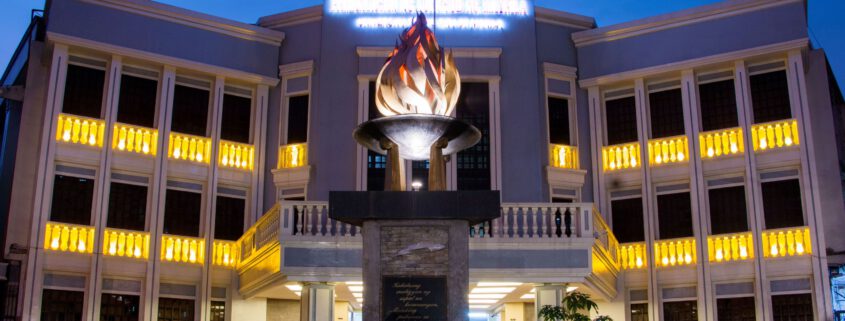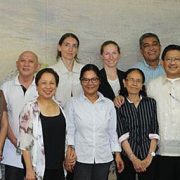PLM names new gender and development program after Liliosa Hilao
The Pamantasan ng Lungsod ng Maynila launched on Monday, April 5, its new gender and development (GAD) program and named it after an activist alumna.
University President Emmanuel Leyco said PLM’s Liliosa Hilao Gender and Development Corner (LHGDC) honors its student leader and honors graduate who was the first political prisoner killed under President Ferdinand Marcos’ martial law.
“Liliosa Hilao remains relevant today. We look up to her as an icon of empowerment. More than gender emancipation, she exemplifies how the youth can spark important conversations on human rights, equality, and justice,” Leyco said.
“It is our privilege and honor to call Ms. Hilao as one of our own and to name our GAD corner after her and the causes that she represents,” he added.
Located at the Celso Al Carunungan Memorial Library, the corner will carry various materials that will promote gender equality and equitable opportunities for all members of the PLM community, the university said.
PLM said LHGDC shall organize annual lectures and forums as well as film showings and exhibits on gender and development as its initial set of activities once the coronavirus-19 pandemic is over.
The launch, held virtually, coincided with Hilao’s 48th death anniversary.

Who was Lilli?
Hilao was associate editor of PLM’s pre-martial law student newspaper Hasik and held other positions with the student government while an honors student throughout her academic life.
She also organized the university’s Communication Arts Club, founded its women’s club Alithea and represented PLM College Editors Guild of the Philippines conventions.
Bantayog ng mga Bayani, an institution that honors and remembers martial law heroes and martyrs, wrote “Lilli”, Hilao’s nickname, had a strong sense of justice and a mind of her own.
“This was expressed in the thoughtful essays she wrote for the student paper at the Pamantasan ng Lungsod ng Maynila (where she was associate editor); some had titles like ‘The Vietnamization of the Philippines’ and ‘Democracy is Dead in the Philippines under Martial Law,’” Bantayog said.
In April 1973, mere days short of her class’ graduation rites, Philippine Constabulary’s Anti-Narcotics Unit personnel raided their house to look for Lili’s brother, an engineer and activist.
“When the young woman insisted that they produce a search warrant or an arrest order, the soldiers beat her up, then handcuffed and took her away. She was brought to Camp Crame, headquarters of the Philippine Constabulary (now the Philippine National Police),” Bantayog said.
She would not be seen by her relatives until she was returned dead –– her body mangled, tortured, and reportedly raped.
The authorities claimed Hilao committed suicide by drinking muriatic acid.

At the graduation ceremonies held two weeks afterward by PLM, a seat was kept vacant for Lilli, who was still conferred her degree, posthumously and with honors.
PLM Regent Wilma Galvante said during the launch their class wore black armbands on their graduation day in Lilli’s honor.
Galvante said her classmate was a “true leader who wielded her pen to fight for what is right.”
Lilli’s name is inscribed at the Bantayog’s pantheon of heroes and martyrs.
In her birthplace and hometown Bulan, Sorsogon, a street was named after her in 2001.
Lilli’s sisters Alice and Josefina attended the launch in behalf of the Hilao family. # (Raymund B. Villanueva)







